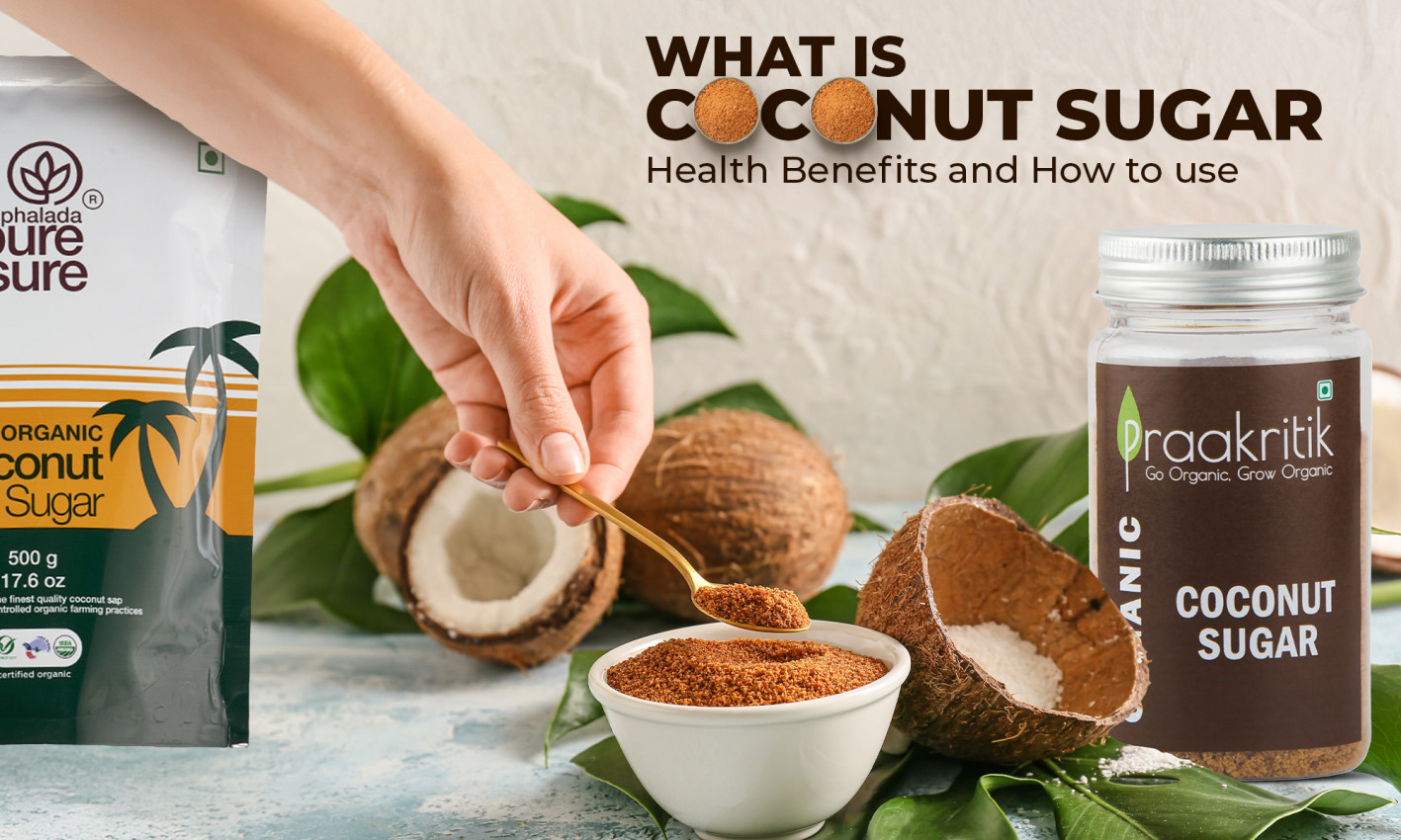
Coconut sugar has become very popular in the past few years, as an alternative to table sugar.
A natural sweetener, coconut sugar is derived from the sap of coconut palm flower buds in South Asian countries.
Renowned for its jaggery-like flavor and nutrient-rich content, Coconut palm sugar offers a wholesome option for those seeking to reduce their refined sugar intake.
Coconut sugar is a natural sugar, packed with trace amounts of nutrients like potassium, magnesium, and zinc, making it an excellent source of health.
Beyond its nutritional benefits, coconut sugar is versatile and can be used in a variety of recipes, from sweetening beverages to enhancing baked goods and savory dishes.
In this blog, we’ll explore how coconut sugar is made and the most delicious uses of this natural sugar.
How is coconut palm sugar made?
People often think that coconut sugar is made from our beloved coconut fruits.
However, coconut sugar is from the sap of coconut flowers!
We should be hugely thankful to coconut climbers, who climb the trunk and collect this naturally made sugar.
Coconut sugar, like other plant species, produces a naturally produced sap when the flower buds, also called “neera” in Kerala.
Coconut sugar is produced through a simple & natural two-step process:
This remarkably simple process gives us delicious coconut palm sugar granules.
Health Benefits of Coconut Sugar:
Packed with essential nutrients and a lower glycemic index, coconut sugar can support overall well-being while satisfying your sweet tooth.

Coconut sugar has multiple health benefits as compared to white sugar, including:
The glycemic index is an important indicator of how much blood sugar is spiked after the intake.
Coconut sugar has a lower glycemic index (GI) of 51, which means it causes a slower release of sugar in the blood.
As compared to White sugar’s GI of 60, coconut sugar is better for those managing diabetes and looking to maintain stable energy levels throughout the day.
However, Coconut sugar retains most nutrients found in the coconut fruit.
It contains essential nutrients like iron, zinc, calcium, potassium, inulin (fiber), and antioxidants, which help combat oxidative stress in the body.
On the other side, Table sugar doesn’t contain any vital nutrients and supplies “empty” calories.
Coconut sugar has a very simple extraction process, making it a “less-processed” alternative to traditional white sugar.
With minimal refining and evaporating, coconut sugar retains most of its nutrients for those seeking to reduce their intake of highly processed sugar.
Coconut sugar has a lower sucrose content compared to regular table sugar.
While white sugar is about 50% fructose and 50% glucose, coconut sugar contains approximately 70-80% sucrose, along with fructose and glucose.
Coconut sugar contains a special type of soluble fiber, Inulin that helps improve gut health and promote weight management.
Research has found Inulin supports good cholesterol by potentially slowing digestion, which allows the sugar to be released slowly in the blood.
How to use Coconut Sugar:

From sweetening your morning coffee to jazzing up your favorite desserts, coconut sugar can do it all without the guilt of refined sugars.
Here are some suggestions on how to incorporate it into your cooking and baking:
Coconut sugar can help sweeten your favorite morning Masala Chai or coffee.
Its caramel-like flavor is also great for smoothies, enhancing the morning freshness.
Organic coconut sugar is more beneficial as natural farming and processing practices make the nutrition, free from toxins of chemical fertilizers and pesticides.
Coconut sugar can be substituted in the place of cane sugar food baking recipes like cookies, cakes, and muffins.
It will work particularly well in moist and chewy batters, because of its ability to retain moisture.
For traditional Indian cuisines like Gulab Jamun, Halwa, Jalebi, and many others, the sweetness of coconut sugar can add a unique twist.
This natural sweetener not only enhances the flavor of these beloved desserts but also offers a healthier alternative to refined sugars.
Sprinkle coconut sugar on oatmeal, yogurt, or pancakes for a nutritious sweet touch.
Incorporate coconut sugar into homemade barbecue sauces or salad dressings for added depth and flavor.
By replacing conventional sugars with coconut sugar, you can enjoy its unique taste while benefiting from its lower glycemic index and nutritional properties.
Summing Up:
Coconut sugar is a versatile and nutritious alternative to refined sugars, offering a delightful jaggery-like flavor while being packed with essential nutrients.
Its lower glycemic index makes it a smart choice for those looking to manage their blood sugar levels without sacrificing sweetness.
Whether you're sweetening beverages, baking treats, or enhancing savory dishes, coconut sugar can elevate your culinary creations.
Embrace this natural sweetener and enjoy the health benefits it brings to your diet!
Explore more from Naturopedia
The Hidden Sugars: How the Most Common Foods Have High-Sugar Content
A Dragon Fruit Revolution: How One Doctor Empowered 5000 Farmers with Organic Farming
India’s Honey Crisis: How Adulterated Honey is Bad for Blood Sugar
6 Winter Fruits That Boost Immunity (And Why Seasonal Eating Matters)
December 5th, 2025Bridal Glow Routine at Home: Easy Kitchen Face Packs Every Bride Should Try
December 3rd, 2025How Ultra-Processed Foods are Fueling India’s Obesity and Diabetes Crisis
November 30th, 2025